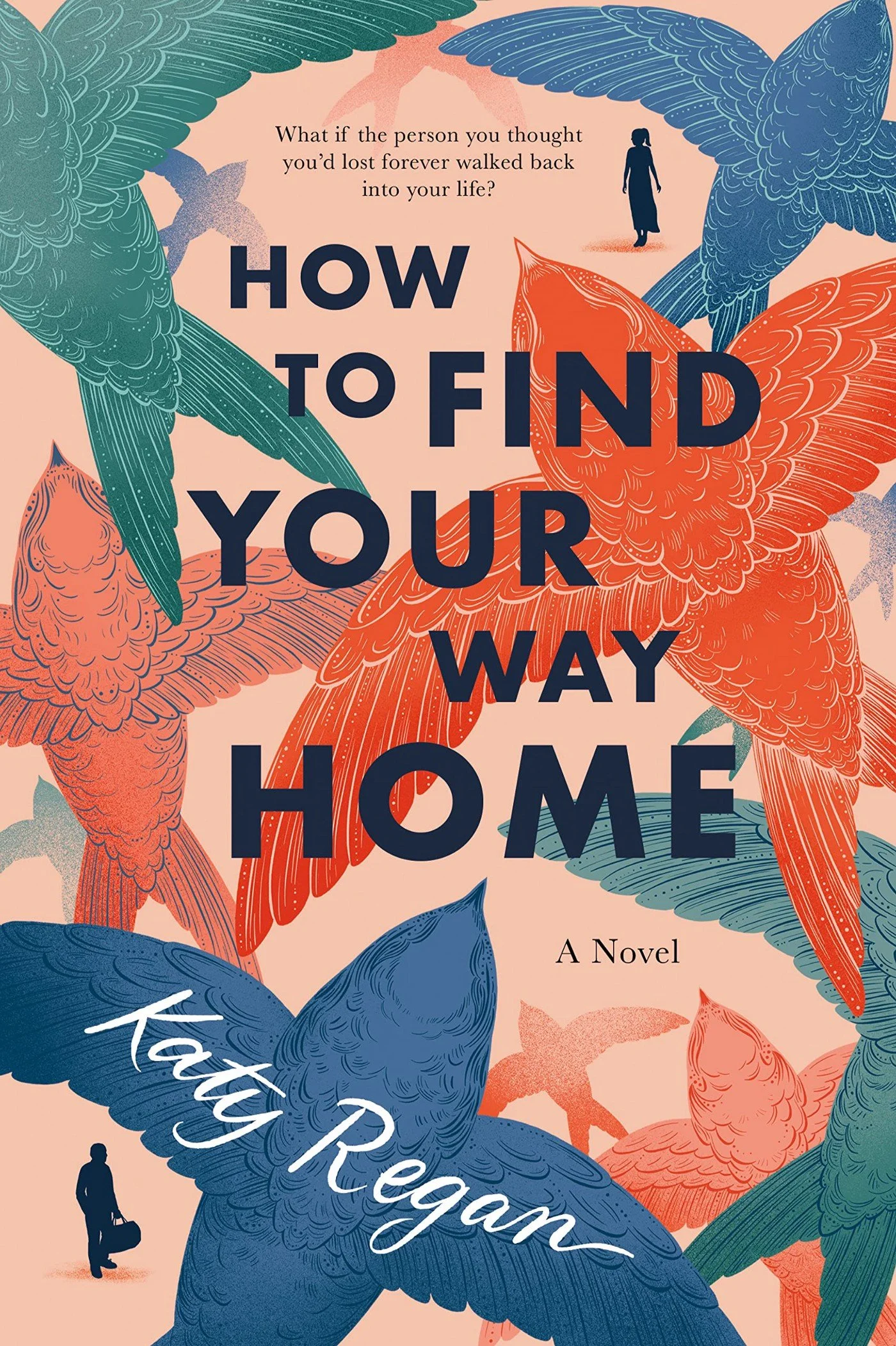The Older I Am, the More I’ve Yearned for the Place I Come From
By Katy Regan
Mynew novel How to Find Your Way Home, is about — among many things — a bird-watching homeless man who has a special relationship with the swifts that migrate from Africa to his childhood home of Canvey Island, Essex, on the east coast of England every spring.
Needless to say, I thought a lot about home and what it means to us while writing this novel. In particular, I thought about and missed my childhood home more than ever.
I was born and raised on the marshy coast of the northwest of England overlooking Morecambe Bay, and across to the dramatic mountains of the Lake District National Park.
However, for fourteen years, I have lived in the land-locked southern county of Hertfordshire. Before that, I lived in London for ten years, in France, Leeds, and Northampton — meaning I have lived away from where I grew up for more years than I was there.
I’ve always enjoyed going back home for family gatherings but in the last few years, I have felt a profound nostalgia and pining for the place where I grew up as well as a general reframing of what “home” means to me.
Why might this be?
Obviously, we can’t ignore the recent global pandemic. I know I am far from alone in being unable to see friends and family — the people who populated what suddenly felt like the halcyon days. I found myself yearning for them, and what they represented: good times. I developed a sudden eagerness for online quizzes with people I hadn’t seen for years. There was loneliness — a deep fear for some — that made me long to reconnect with what felt safe and innate, with the core of me — my roots.
Undoubtedly, my age played a big part in the sharpening of this homing instinct. There were the obvious things — like aging parents, precious time I felt I was missing out on — but also the subtle things that were uncovered in conversations with friends. For example, in our twenties and thirties, we were finding ourselves, defining ourselves, and, to some extent, proving ourselves. Now, in mid-life, we simply wanted to be ourselves, and what better place to achieve that than the place where we began? The place where we grew up?
“It’s only when you’ve lived a bit, been through a few battles, got a few scars that you know how tough life can be,” said my friend Lyndsey. “And it’s then that you start pining for your childhood home where, in your head, it was all so simple and carefree!”
There’s also the fact that our own children are starting to leave home. My son is seventeen. Soon, he goes to university. Fleeing the nest is the way it should be, the natural order of things, I can’t help but feel untethered. The grounding safety of my own childhood nest feels attractive and comforting just now — if only for a weekend.
I miss the landscape of the place I grew up. I feel drawn towards it in a way I haven’t before, and this has been the most surprising symptom of my “homesickness.”
As a teenager, I was unappreciative, as many of us are, of the stunning scenery on my doorstep. The words “let’s go for a walk” struck dread into my heart! Now, I can’t think of anything I’d rather do than romp around the wilds of the northwest coast, watch the tide come in, and walk along those beautifully desolate grass-topped mud-flats. I can’t decide if this is because I have more space in my head these days, now that the constant “getting, wanting” years of young adulthood are over, or whether it’s because I have less and need the restfulness of that home landscape more.
Who knows what my migratory path will be: to stay here where I arrived fifteen years ago, or, like both my sisters, travel back up to live where I was born. Whatever it is, I know one thing for certain: I might live down south and I’m happy here, but my heart and my home will always be north.
++
How to Find Your Way Home by Katy Regan is out now, published by Berkley, Penguin Random House.


